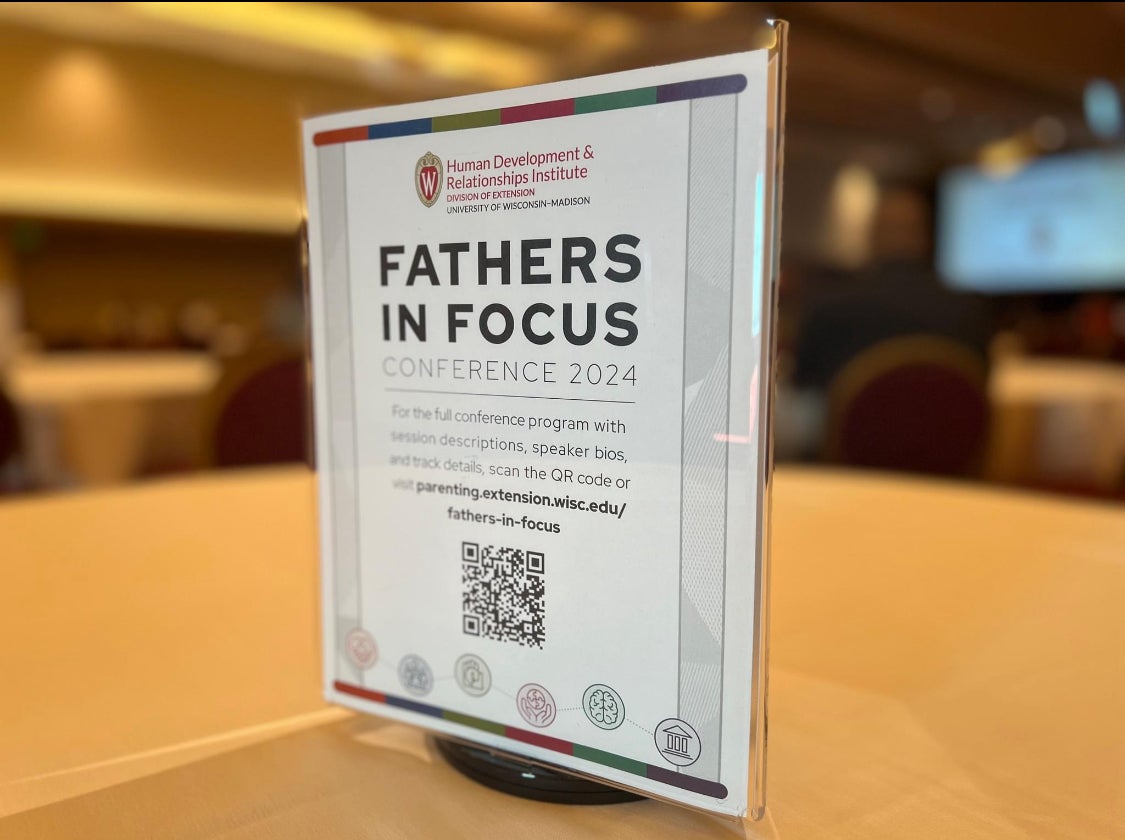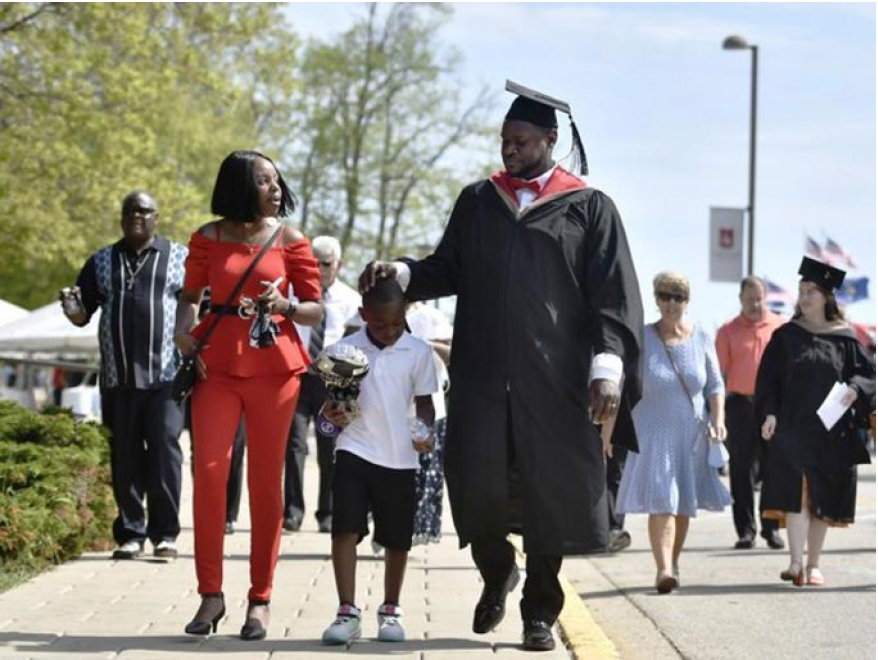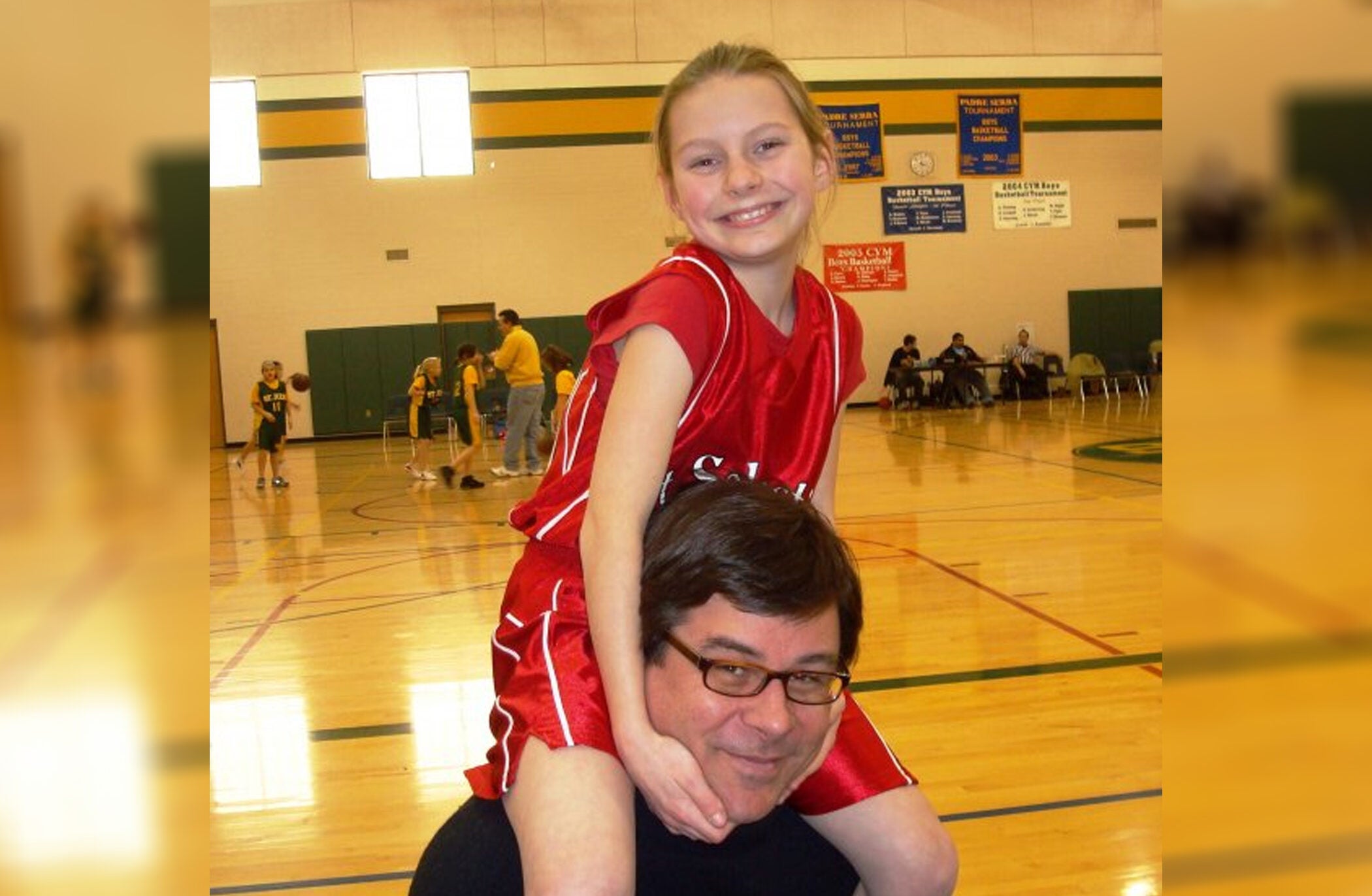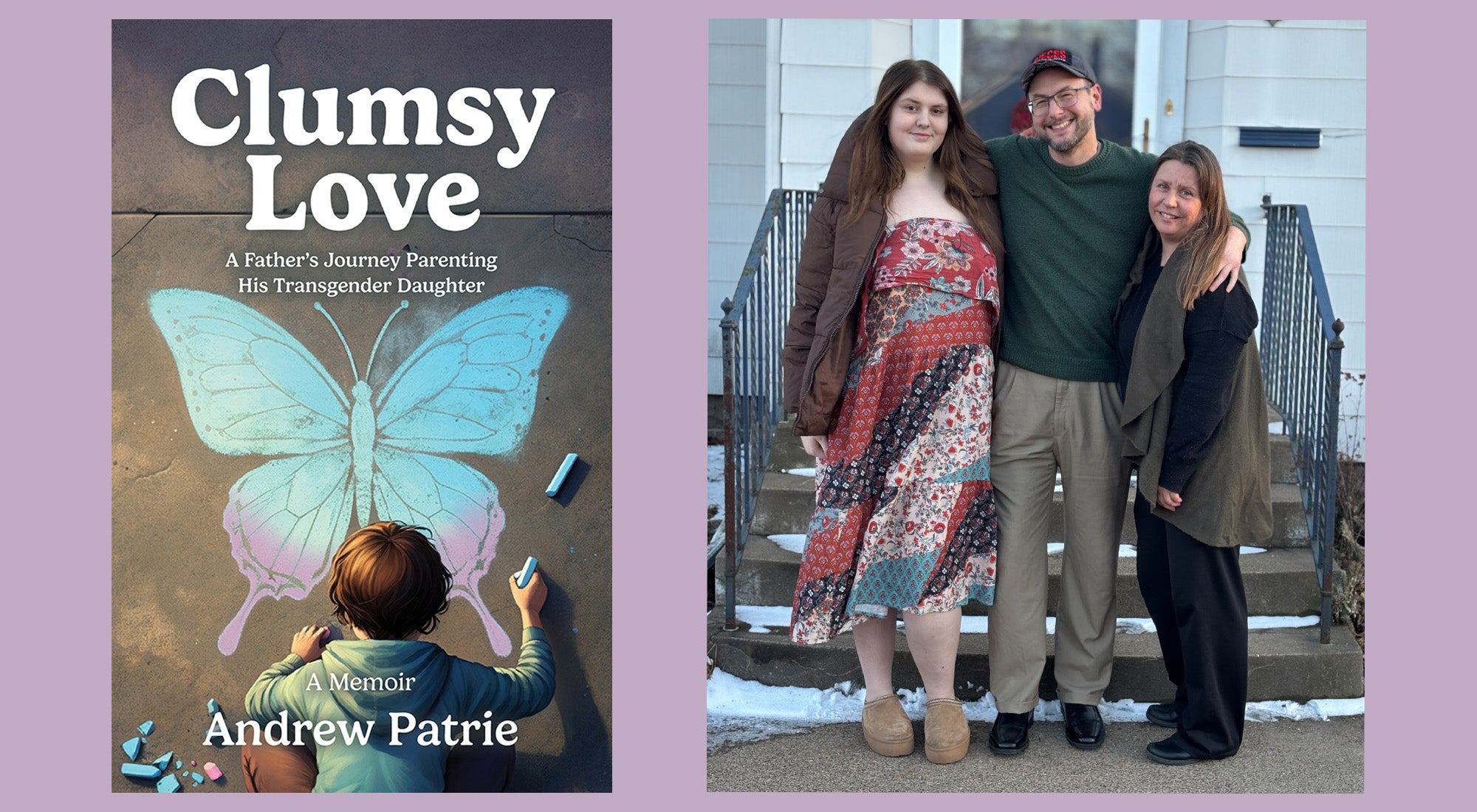A researcher and clinical psychologist at the University of Wisconsin-Madison has made it his mission to focus on the challenges fathers face and rebuke stereotypes around Black fathers.
An event he helped organize last week aimed to connect fathers across Wisconsin with expert resources.
The Fathers in Focus conference in Madison last week brought researchers and advocates together to talk about a myriad of issues fathers face, including co-parenting, mental health and criminal justice challenges.
News with a little more humanity
WPR’s “Wisconsin Today” newsletter keeps you connected to the state you love without feeling overwhelmed. No paywall. No agenda. No corporate filter.
Event co-chair Alvin Thomas told WPR’s “Wisconsin Today” that it is important to discuss and address the problems fathers face.
“We know that if the parent relationship is not a very strong one or not a very healthy one, that more likely than not, the attachment between the child and the father is going to be compromised,” Thomas said. “Which of course will lead to potential negative outcomes for the child, but also for the dad.”
Thomas spoke to WPR about the issues dads face and how he tries to rebuke harmful narratives around Black fatherhood.
The following interview was edited for clarity and brevity.
Kate Archer Kent: When you talk about co-parenting and financial issues and complications from being involved in the justice system, are there certain topics that are more difficult discussing with fathers?
Alvin Thomas: I think that is on a case-by-case basis.
As a researcher or as a practitioner, you go into each interaction understanding that you can’t predict everything that’s going to happen. You approach the person that you’re dealing with as an individual and the system as an individual system, rather than as a representative of some monolithic understanding of families.
As a clinical psychologist, once I have established trust, I would probably try to either challenge them on something that they’ve said, or push them to start to think about things in a different way. Maybe try addressing an issue that I think might be underlying, but that they may feel reticent about discussing.
You do that really interesting dance where you’re trying to push but you’re also being aware and sensitive to whether or not they’re willing to be pushed and how far they’d be willing to go with that particular discussion. Sometimes you broach the topic now and you come back to it later, when the individual feels more comfortable talking with you.
KAK: You have said that you want your work to correct false narratives around Black fathers. What have you found in your role as a clinical psychologist?
AT: I was seeing this 10-year-old boy for specific challenges that mom had brought him in for. The parents were separated. Dad had recently returned from incarceration. Mom was having difficulties with the co-parenting relationship. Dad obviously had financial issues. He wasn’t able to land a job, because he would go interview for the job — it would be positive — and of course, then they’d do the background check, and the response was usually, “Oh, the position is filled” or “We’ll keep you on file and we’ll call.” And he knew what that meant — they found out that he had a criminal history and … they weren’t willing to go beyond that.
So the dad came in with the intention of being involved, even though mom did not want him involved in the therapy. But the dad showed up on his own and said, “Can I just talk with you?”
We talked, and by the end of our session, dad was in tears. Dad was saying, “These are my challenges, financial and otherwise, and these are also my challenges … within the relationship with my child and my child’s mother. And I’m also trying to battle the history of my own experiences with my father and what that did to me and what I want to accomplish.”
After about five to 10 sessions, dad and mom were now on the same page. The kid was doing significantly better. His younger sibling was also doing better, and they left my final session as a family.
But it started with dad being willing. Dad demonstrating that, despite the narrative that Black fathers aren’t interested or Black fathers aren’t involved, and despite the significant hurdle of re-integrating post-incarceration, that he was extremely interested and willing to go into the vulnerable spaces and willing to explore whatever needed to be explored. First to help his child, but second to strengthen his skills. One of the things that he said to me was, “I don’t know what to do with those soft things,” talking about the emotionality — both his and his child’s.
He had given me a gift to say, “This is the thing that I need help with.” And I said, “Great. Now that you’ve identified it, let’s work on that.”
KAK: Themes of parenthood have emerged in the presidential race. Republican vice presidential candidate JD Vance has attacked people who don’t have children, calling childless Americans “more sociopathic” and that they’re making the country “less mentally stable.” What role do you see fathers and fatherhood having in this election cycle?
AT: We’re at a very weird political space in America. But if Republicans love their children, if Democrats love their children, if the non-political love their children, you would hope that we could all start at that basic level and do whatever it takes. Provide the supports that need to be present for the best health and the best outcomes for our children.
Providing maternal support is going to lead to the best outcomes for our children. Providing child supports is going to be to the best interest of our children. Providing paternal support — and providing child care support — is also going to be to the best interests of our children, regardless of what our political ideologies or leanings happen to be.
Wisconsin Public Radio, © Copyright 2025, Board of Regents of the University of Wisconsin System and Wisconsin Educational Communications Board.







